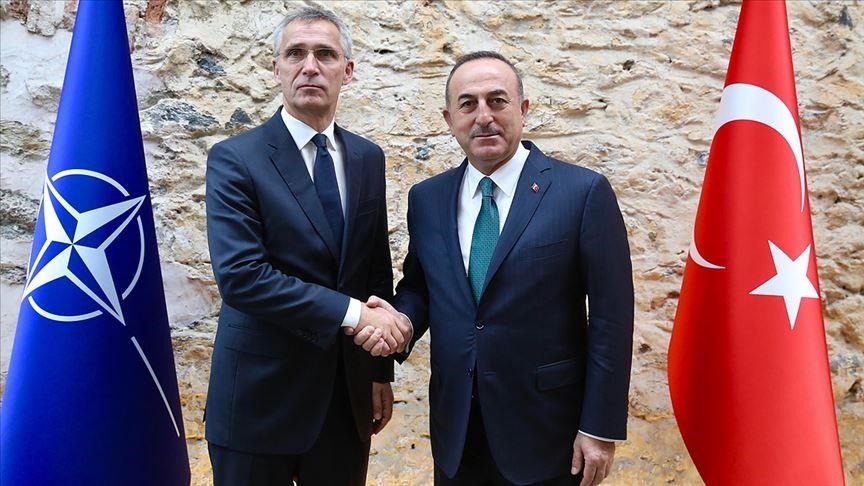Siamak Kakaei, in an interview with the website of the Strategic Council on Foreign Relations noted: Ankara has entered a challenging period with the Europeans in recent years, especially after 2016, and in particular has experienced a kind of frustration in negotiations with Europe and joining the union. According to some observers, this has led to a change in Turkey’s foreign policy approaches and priorities, and many believe that Turkey’s view of Russia, and to some extent to the East, stems from its dissatisfaction with policies of Europe and the US.
Saying that the focus of Turkey’s challenges with the United States and Europe can be divided into several sections, Kakaei added: The first is the S400 project and the purchase of Turkish military equipment from Russia, which has become an adventure in US-Turkish relations. However, both during Donald Trump’s presidency and in the early months of Biden’s administration, US criticism of Turkey’s plan to buy a missile system from Russia has been on the rise.
The expert referred to the recent US State Department’s statement announcing that the United States is imposing sanctions on the Turkish Defense Industries Directorate (SSB) and four of its executives over a significant deal with Russia, and said: Following those developments, the United States raised the issue of imposing sanctions on Turkey. In the meantime, the issue of removing Turkey from the path of manufacturing some F-35 components, which is very important for that country, as well as the issue of imposing sanctions on Turkey, is very serious, and the US and NATO are very willing to see Turkey revise in its policy of continuing the delivery process of S400 system.
Explaining the reason for the West’s opposition to Turkey’s cooperation with Russia, Kakaei said: The concern of Europe and the United States and NATO in general is that this cooperation between Turkey and Russia will lead to a leak of information on the situation in NATO and bilateral cooperation. It means that Russia will have access to some of the NATO intelligence sources within the framework of missile and military equipment cooperation with Turkey.
Analyzing Ankara’s policies for the purchase of the S400, he said: Turkey has criticized the United States and the Europeans and stated that when NATO refuses to provide Patriot missiles to Turkey, Ankara will equip itself to strengthen the military and counter regional threats.” It has become the S 400 missile system itself.
The expert said that another goal of Turkey is to diversify its access to military equipment resources, adding that Ankara has never wanted to be completely subordinated to NATO and the United States, and therefore seeks to strike a balance; a balance in which Russia is on one side of the triangle and this could be a tool for putting pressure by Turkey on NATO and the United States; that is to say, the West will have to make concessions on missile equipment and, more importantly, change the policies of the United States and NATO members in the Middle East. Meanwhile, the focus of Turkey’s concerns is on Syria; where the United States, by supporting the Syrian Kurds, has caused concern for Ankara.
Kakaei called the second political challenge between Turkey and the United States, and then NATO, a contradiction in their attitudes towards Syria, and said: Turkey believes that the situation in northern Syria is a security threat to Turkey’s national interests and security and for this reason, since 2018, it has occupied parts of the northern regions of Syria in Afrin and the Tal Abyad region and parts of northeastern Syria. Ankara believes that those areas have become a base for the PKK activities, which is considered a security threat to Turkey. In particular, the US field support for the so-called People’s Defenders, a Kurdish group in Syria, has been a matter of serious concern to Ankara.
Kakaei emphasized: Turkey believes that this US policy has created a security friction for Turkey, and therefore, given this issue, we are witnessing closer proximity to the policies of Ankara and Moscow.
In response to whether Turkey wanted to use such policies to exploit NATO’s military might in the areas where it is involved, the expert said: The Eastern Mediterranean region has become a new challenge between Turkey and some NATO members and the Europeans; in particular, Turkey’s agreement with Libya in late 2019 has escalated tensions between Turkey and France and some other NATO members, and Turkey’s policies in the Eastern Mediterranean have been criticized by both NATO and the United States.
He continued: Western NATO members describe Turkey as adventurous, which could be a challenge to security and peace, but Ankara, on the other hand, believes that NATO pays little attention to Turkey’s concerns and when its security and economic interests are at stake, such as the developments in Syria or in the Mediterranean, NATO members have not and will not provide the necessary support to Turkey; therefore this has blocked the way to Turkey to use any implicit support of the NATO.










0 Comments